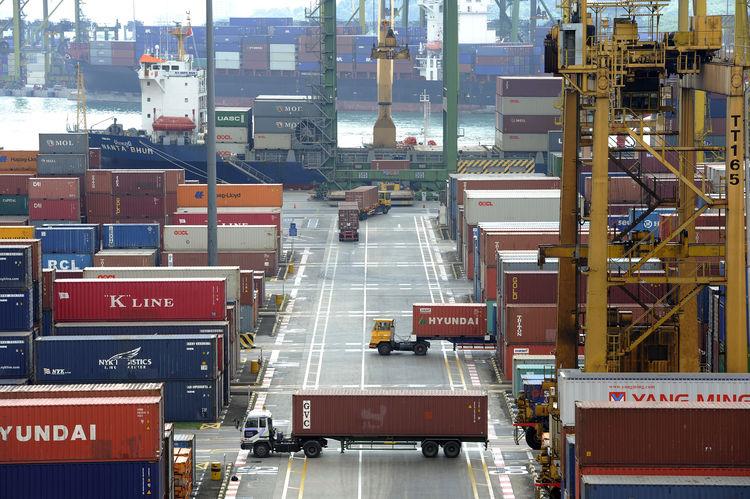- Nigeria Targets N945bn Revenue from Non-oil Sector in 2018
The Federal Government plans to raise the sum of $3.1bn (N945.5bn) from the country’s non-oil export sector through value addition from 11 agricultural products.
Details of the projected revenue from the exportation of these products are contained in a document prepared by the National Committee on Export Promotion.
The document is the implementation framework, which the committee, had prepared to stimulate non-oil exports.
The 13-member committee, chaired by the Governor of Jigawa State, Alhaji Muhammed Badaru, was constituted with the approval of the National Economic Council.
Its major task is to help identify ways to achieve the zero oil plan initiative of the government that seeks to replace oil as the major source of foreign exchange earner.
According to the implementation framework, which was obtained by our correspondent on Friday in Abuja, about 11 agricultural products have been picked to generate the N945.5bn revenue for the government.
The products are sesame, where the government is targeting to generate $500m (N152.5bn) through exports from the current $200m (N61bn); cashew, $500m (N152.5bn) from the current $150m (N45.75bn); tomato, $250m (N76.25bn); and oranges, $250m (N76.25bn).
Others are cassava, $250m (N76.25bn) from the current export value of $2m (N610m); spices, $250m (N76.25bn) from the current value of $30m (N9.15bn); ginger, $100m (N30.5bn) from $30m (N9.15bn); Shea butter, $100m (N30.5bn) from its current export value of $5m (N1.52bn).
The rest are cowpea, $100m (N30.5bn); banana and plantain, $250m (N76.25bn) and cement and clinker, $500m (N152.5bn).
Speaking on the committee’s assignment, Badaru called on all state ministries of agriculture to support farmers to produce competitively and qualitatively for the export market.
Speaking in an interview on the sidelines of the committee’s meeting, Badaru who is also the chairman of the committee, said exporting agricultural produce would shift the nation’s focus from oil and improve the economy enormously.
He said, “I believe that in the next growing season things will start improving because we are talking to those that export mostly agriculture products.
“At this time, we are putting all machinery in motion to make sure that the production is improved, the quality is improved and the bottleneck in exporting is reduced.’’
He said the issue of quality would be taken seriously by all the standards regulatory agencies in the country, noting that this would help to reduce the rate of rejection of products exported from Nigeria
He said that the bottleneck experienced by exporters at the nation’s ports and the high cost of transportation would be soon addressed.
He said the committee was discussing with rail transporters to see how transportation of farm produce could improve strategically.
The Executive Director, Nigerian Export Promotion Council, Mr. Segun Awolowo, said some of the problems Nigerian exporters faced were poor standards and packaging for specific products.
He also said there were insufficient ties between diplomatic agenda and Nigeria’s exports.
He said that administrative procedures in the export process were also an issue.

 Forex4 weeks ago
Forex4 weeks ago
 Naira4 weeks ago
Naira4 weeks ago
 Billionaire Watch4 weeks ago
Billionaire Watch4 weeks ago



 Naira4 weeks ago
Naira4 weeks ago






 Naira4 weeks ago
Naira4 weeks ago


 Naira3 weeks ago
Naira3 weeks ago






 Naira3 weeks ago
Naira3 weeks ago
 Economy4 weeks ago
Economy4 weeks ago
























